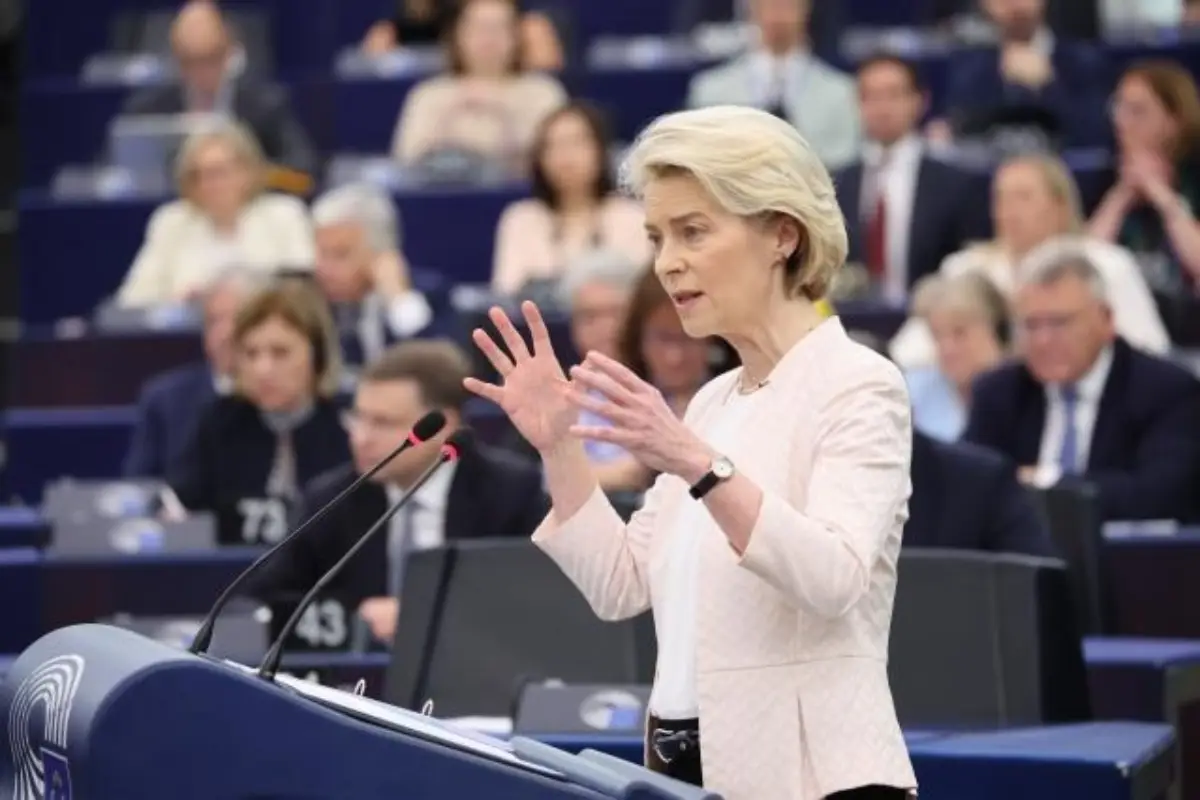
The Commission pushes for agreements with Mercosur and Mexico
The proposal to the Council: defined as "of crucial importance"

The European Commission has presented to the Council its proposals for the signature and conclusion of the EU-Mercosur Partnership Agreement (EMPA) and the EU-Mexico Modernized Global Agreement (MGA). These "crucial" agreements, as the official Brussels statement emphasizes, "are a key part of the EU's strategy to diversify its trade relations and strengthen economic and political ties with like-minded partners around the world."
These partnerships, the statement adds, "will create export opportunities worth billions of euros for EU companies of all sizes," contribute to economic growth and competitiveness, support hundreds of thousands of European jobs, and promote EU interests and values. They will strengthen value chains and help the EU expand its range of reliable sources of essential inputs and raw materials. In a period of growing geopolitical instability, these agreements bind us to strategically important partners, providing a shared platform to strengthen mutual trust and address common global challenges, including the modernization of the rules-based global trading system."
"Our agreements with Mercosur and Mexico are important milestones for the EU's economic future," stressed European Commission President Ursula von der Leyen . "We continue to diversify our trade, foster new partnerships, and create new business opportunities. EU businesses and the EU agri-food sector will immediately reap the benefits of reduced tariffs and costs, contributing to economic growth and job creation. The EU is already the world's largest trading bloc, and these agreements will strengthen that position."
Export opportunities in Mercosur
The agreement with Argentina, Brazil, Paraguay, and Uruguay (the EU-Mercosur Partnership Agreement) will create the world's largest free trade area, covering a market of over 700 million consumers. EU businesses will enjoy a significant advantage, benefiting from lower tariffs in a region where most other countries face high tariffs and other barriers to trade.
The agreement is estimated to increase EU annual exports to Mercosur by up to 39% (€49 billion), supporting more than 440,000 jobs across Europe. The agreement will reduce Mercosur tariffs, often prohibitive for EU exports, including on key industrial products, such as automobiles (currently 35%), machinery (14%-20%), and pharmaceuticals (up to 14%).
EU agri-food exports to Mercosur are expected to increase by nearly 50%, as the agreement reduces high tariffs on key EU agri-food products, particularly wine and spirits (up to 35%), chocolate (20%), and olive oil (10%). The agreement will also support the growth of exports of traditional, high-quality EU agri-food products. Furthermore, the agreement will put an end to unfair competition from Mercosur products that imitate authentic EU products, protecting 344 EU geographical indications.
The agreement provides comprehensive protection for all EU sensitivities in the agricultural sector. First, it limits preferential agri-food imports from Mercosur to a fraction of EU production (for example, 1.5% for beef and 1.3% for poultry). Second, it establishes robust safeguards that protect sensitive European products from any harmful increase in Mercosur imports. The EMPA does not alter any EU sanitary and phytosanitary (SPS) import requirements.
Opening of the Mexican market to the EU
The new agreement with Mexico will further support economic growth and increase the competitiveness of both parties. Mexico is one of the EU's longest-standing trading partners and Latin America's second-largest; the original agreement dates back to 2000. The EU exports goods and services to Mexico annually under the current trade agreement, supporting over 630,000 jobs in the EU.
The modernized EU-Mexico agreement will eliminate the remaining prohibitive tariffs on EU agri-food exports to Mexico, such as cheese, poultry, pork, pasta, apples, jams, chocolate, and wine. Eliminating these tariffs, which currently reach 100% on some EU exports, will make EU agricultural products much more competitive in Mexico. Furthermore, simpler procedures will make it quicker and cheaper for agri-food exporters to sell their products on the Mexican market. The agreement also extends protection against imitations to 568 high-quality, traditional European iconic products (geographical indications).
Next steps
The EMPA and the MGA must be approved separately by the European Parliament and the Member States before they can enter into force. The Commission's proposals for their conclusion and signature provide for two parallel legal instruments for each agreement:
- the EU-Mercosur Partnership Agreement (EMPA) and the EU-Mexico Modernised Comprehensive Agreement (MGA), subject to separate ratification by all Member States;
- two Interim Trade Agreements (iTAs), one for Mercosur and one for Mexico, covering only the parts of the EMPA and MGA under exclusive EU competence, to be adopted through the EU-only ratification process – involving the European Parliament and the Council of Europe.
EFA News - European Food Agency